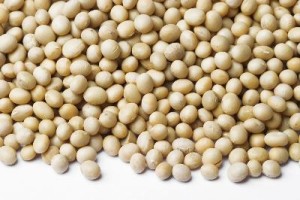Nattokinase is an enzyme (a protein that speeds up biochemical reactions) that is extracted from a popular Japanese food called natto. Natto is boiled soybeans that have been fermented with a bacterium called Bacillus natto.
Contents
Uses
Natto has been used as a folk remedy for diseases of the heart and circulatory system (cardiovascular disease) for hundreds of years. Nattokinase, the chemical in natto that is probably responsible for its effects, was discovered by a University of Chicago researcher, Dr. Hiroyuki Sumi.
You won’t find nattokinase in soy foods other than natto, since nattokinase is produced through the specific fermentation process used to make natto.
Nattokinase is used for cardiovascular diseases including heart disease, high blood pressure, stroke, chest pain (angina), deep vein thrombosis (DVT), “hardening of the arteries” (atherosclerosis), hemorrhoids, varicose veins, poor circulation, and peripheral artery disease (PAD).
It is also used for pain, fibromyalgia, chronic fatigue syndrome, endometriosis, uterine fibroids, muscle spasms, infertility, cancer, and a vitamin-deficiency disease called beriberi.
Benefits
Heart disease
Nattokinase may be potentially useful as a clot-buster and blood thinner, and is considered by some in the alternative medicine community as a possible adjunctive therapy in cardiovascular disease. There is some evidence for its effectiveness. Possible side effects have been reported. In one case, a patient concurrently taking aspirin and 400 mg of nattokinase daily for seven consecutive days to prevent stroke suffered an acute cerebellar hemorrhage.
Alzheimer’s Disease
A 2009 study showed that nattokinase may be effective in catabolism of toxic amyloid fibrils associated with Alzheimer’s Disease, as well as the insulin fibrils associated with diabetes and the prion peptide fibrils associated with prion diseases. The study reported that its effects were similar to those seen when proteinase K was applied in the same manner. The study’s authors noted that “[t]his amyloid-degrading ability of nattokinase suggests that it may be useful in the treatment of amyloid-related diseases,” particularly as “[p]revious results in rats, dogs and humans have suggested that nattokinase can enter the circulation when taken orally.” However, they cautioned that their results were preliminary, and made the following suggestion:”[S]ince natto has been ingested by humans for a long time, it would be worthwhile to carry out an epidemiological study on the rate of occurrence of various amyloid-related diseases in a population regularly consuming natto.” Indeed, 2011 WHO data shows nearly a tenfold increased incidence of death by Alzheimer’s and dementia in the United States versus Japan, where natto is regularly consumed by a significant portion of the populace. Since Bacillus subtilis depends heavily on amyloid proteins for its cellular structure, nattokinase may be most effective in the presence of live B. subtilis, which sequesters such proteins in its cell membrane. This compounds the difficulty of conducting in vivo efficacy studies on nattokinase isolate, as it is unclear what portion of nattokinase’s effect stems from activity in the gastrointestinal tract versus once it enters circulation.
Cautions
Nattokinase is POSSIBLY SAFE when taken by mouth as medicine. Taking two doses of a specific product containing nattokinase (Flite Tabs) seems to be safe. However, it is not known if taking more than two doses is safe.
Pregnancy and breast-feeding: There is not enough reliable information about the safety of taking nattokinase if you are pregnant or breast-feeding. Stay on the safe side and avoid use.
Bleeding disorders: Nattokinase seems to act like a “clot thinner” and might make bleeding disorders worse. Use with caution.
Surgery: Nattokinase might increase the chance of bleeding too much during or after surgery. Stop taking it at least 2 weeks before a scheduled surgery.
Interactions
- Medications that slow blood clotting (Anticoagulant / Antiplatelet drugs) interacts with NATTOKINASE
Nattokinase can decrease blood clotting. Taking nattokinase along with medications that also slow clotting might increase the chances of bruising and bleeding.Some medications that slow blood clotting include aspirin, clopidogrel (Plavix), diclofenac (Voltaren, Cataflam, others), ibuprofen (Advil, Motrin, others), naproxen (Anaprox, Naprosyn, others), dalteparin (Fragmin), enoxaparin (Lovenox), heparin, warfarin (Coumadin), and others.
Other names
BSP, Extrait de Natto, Fermented Soybeans, Haricots de Soja Fermentés, Natto de Soja, Natto Extract, Nattokinasa, NK, Soy Natto, Subtilisin NAT
References
Source: WebMD, http://www.webmd.com/vitamins-supplements/ingredientmono-1084-nattokinase.aspx?activeingredientid=1084&activeingredientname=nattokinase
Wikipedia, https://en.wikipedia.org/wiki/Nattokinase

